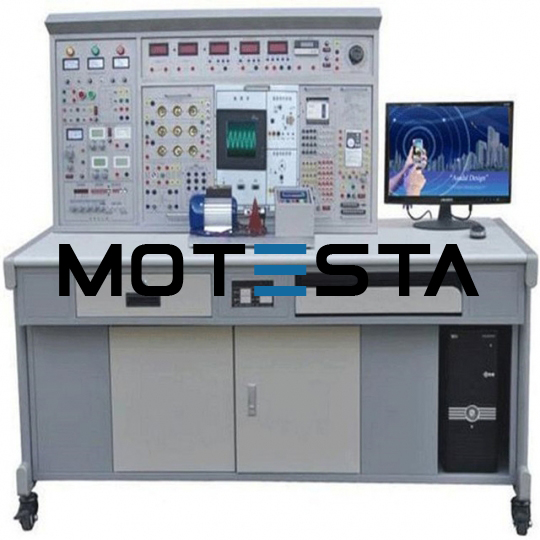 lab@motestainstruments.com | Civil and Mechanical Engineering Lab Equipments India China
lab@motestainstruments.com | Civil and Mechanical Engineering Lab Equipments India China

Code: TVET-ITI-1001142
Industrial Automation Network Integration Training Systems.
Industrial Automation Network Integration Training Systems.
Features
1. Clear Network Structure
Each device is placed in the experimental stage according to the
network layer it belongs to. This can clearly show the three network
layers-field control layer, process monitoring layer, and enterprise
management layer-in modern enterprises in front of students, thus
enabling the students to master the network structure of each layer as
well as the network layer some device belongs to and its use.
2. Strong Systematicness
Our industrial automation network integration training system
integrates main equipment in industrial site, such as PLC, remote I/O,
touch screen, frequency converter, etc., and it can simulate various
control modes in industrial scene, enabling students to systematically
learn the automation control.
3. Strong Openness and Expansion
The teachers can replace major devices in this training system
quickly and conveniently as per their teaching needs. They can also
connect the third-party devices to this system via Ethernet and
PROFIBUS.
4. Close to Actual Site
The experiments done on this training equipment are all applications
of mainstream technologies in industrial site, which adapts to the
development of the control technology. Therefore, this equipment can
meet the requirements of curriculum design, student doing experiments
and graduate design, as well as college undertaking projects.
5. Convenient Operation
Our industrial automation network integration training system adopts
a modular structure as well as a combination of mesh plate and hanging
box. A variety of small engineering project design can be conducted on
this product, which helps to improve the students' practical ability and
comprehensive ability to solve problems. The hanging box is convenient
to replace and system combination is more flexible.
Network Structure Diagram
Experimental Projects
1. PC configuration software programming exercises
2. Remotely read and write PLC variables on PC
3. MPI communication network experiment
4. PROFIBUS communication network experiment
5. Ethernet and OPC protocol communication network experiment
6. USS protocol communication network experiment
7. PPI communication network experiment
8. Free port serial communication experiment
9. Networked remote frequency converter and motor control experiment
10. Stepper motor control experiment
11. Basic instruction programming exercises
12. Touch screen programming and communication experiment
13. Remote I / O control experiment
14. Industrial field comprehensive simulation training
15. LED hanging box simulation (Flashing light control system, traffic lights, elevator, etc.)
16. AC variable frequency speed regulation training